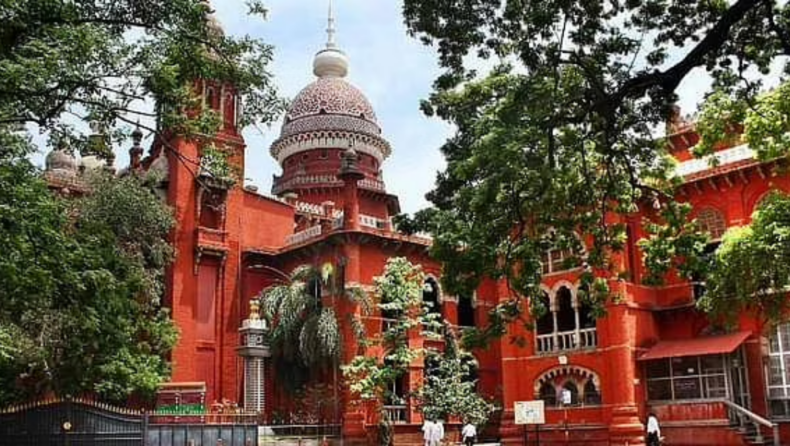The petitioner requested that non-Hindu individuals not be allowed to participate in the Kumbabishegam competition of Arulmighu Adikesava Perumal Thirukovil in Thiruvattar and people cannot be prevented from entry into a temple if he has in that Hindu deity.

The Madras judiciary recently determined that if someone of another faith has religion in an exceedingly explicit Hindu god, he can not be prevented from entry into the temple of that god [C Soman v. Secretary, Hindu Religious Charitable Department, and Others].
A subdivision bench created by Judges PN Prakash and R Hemalatha created constant observation in an exceedingly Public Interest proceedings (PIL) motion asking non-Hindus to not attend Arulmighu’s Kumbabishegam competition Adikesava Perumal Thirukovil in Thiruvattar.
A request for AN change was created, however, the constant was denied by AN order of nine could 2006 rejecting suspect 6’s assertion that the order of August five, 1987, profaned the defendant’s elementary rights petition underneath section twenty-six of the Constitution.
By law, that is, statutory provisions in sections forty-five and 107 of the 1959 Act, these rights don’t seem to be offered to suspect No. 6.
During this order, the complete history of the dispute is mentioned and it’s additionally declared that the manager Officer took charge of the Temple on twenty.03.1997 and has since been responsible for the administration of the Temple.
The same Order additionally discloses that suspect six was unable to supply correct accounts of Temple’s movable and immovable property and records the subsequent factual finding:
“The authority unconditional within the administrator is to administer the temple and its properties and maintain them in an exceedingly laic manner. Therefore, the rights of petitioners don’t seem to be affected or impaired in any method, the aim ANd reason for appointing a military officer don’t seem to be to eliminate petitioners claiming to be followers of the temple.
This (Emphasis added) J. suspect No. six filed Petition outline No. 18248 2006 to dismiss the Ordinance of nine could 2006 that the Supreme Court had upset by the Judgment and Order of February 2, 2009, filed Notice that the ruling mentioned on top of within the petition states shortly (C) Nos. 379-380 from 1951 titled Marimuthu Dikshitar c. State of Madras & Anr., reported in 1952 (1) MLJ 557, during which the Dikshitars square measure thought of a “religious sect”, won’t operate as res judicata.
The appellant himself argued that Section twenty-six of the Constitution grants sure elementary rights to voters and particularly to a “religious sect” that can’t be suppressed or reduced during this case, the Dikshitars are declared by this Court, in an exceedingly list demanded between the Dikshitars and also the State and Commissioner for faith, that they’re a recognized “religious sect” and thus they need management. Temple property.
Through the provisions of Article forty-five square measure along with Article 107 of the 1959 law, the State could have the facility to control temple activities, however, it doesn’t have the facility to deprive the Dikshitars of management and administration and its Properties.
It’s been vehemently declared that the Supreme Court mistakenly controlled that the sooner ruling of the Bench Division within the Marimuthu Dikshitar (Supra) case wouldn’t have the result of res judicata.
Consequently, attractiveness ought to be allowed.
C Soman nerve agent supported the petition following a letter of invitation to conduct the Kumbabishegam competition, where, the name of a minister, a United Nations agency believed to be a Christian, found an area.
Whereas subsiding the matter, the Court recognized that even pious songs of Dr. KJ Yesudas, a Christian, performed on numerous Hindu deities were performed without hesitation. in temples like Nagore Dargah and Velankanni Church.
Furthermore, it’s additionally been determined that once a vacation like the Kumababisegam of a temple is widely known, the authorities won’t be ready to verify the non-secular identity of every lover to permit them to enter the temple during this context, the Court found:
“In our opinion, once a vacation just like the Kumababisegam of a temple is widely known, the authorities won’t be ready to verify the nonsecular identity of individual devotees to permit entry to the temple.
Additionally, if one belongs to a different faith, has religion in an exceedingly explicit Hindu god, this can not be prevented and entry to the temple can not be prohibited either.”
Consequently, the Court rejected the petition













